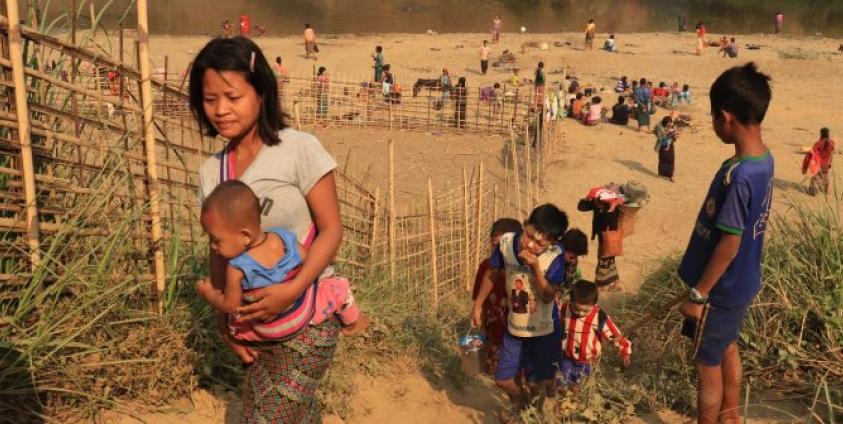Families displaced by fighting in southern Chin State are worried their children won’t be able to continue their education when school resumes next month after the Burmese government relaxes a three-month lockdown.
The government plans to open schools on July 21, but after the conflict drove many families to seek refuge in Paletwa township there are not enough school buildings for all the displaced children living in Sami.
Fighting between the Tatmadaw and Arakan Army (AA) in southern Chin State forced many families to seek shelter in one of the internally displaced persons (IDPs) camps in the town.
Of the 2,900 IDPs in Sami, 734 are children who wish to attend primary and high school classes when classes start up again in less than a month.
Zaw Li Awng, the director of the People Hope Organisation (PHO), which is working with the IDPs, wants the government to build additional buildings for the new students in time for classes. “We have a high school and a middle school in Samai, but these schools have their own students,” he explained.
As the rainy season approaches, Zaw Li Awng is concerned that bad weather will hamper construction efforts. “In our Chin hills, it usually rains all day and night, so building the schools on time will be difficult.”
They need more than just new schools, he said, explaining there aren’t enough chairs and tables for the students. Zaw Li Awng isn’t sure these things will be built before the school year begins.
Pau Lum Ming Thang, Minister for Health and Social Affairs of Chin State, said the government is building temporary shelters to hold classes inside the eight IDP camps in Sami.
He told Khonumthung News that the government planned to make several large buildings (80” x 30). But with the fighting still ongoing, construction efforts have been obstructed.
They still have to “make sure the children get their education” Pau Lum Ming Thang said. “Even though we can’t build school buildings for them right away, we’re going to make some shelters where they can get their education.”
Building shelters may be a better option than making permanent structures, he said, because new clashes could force IDPs to move to another location.
Although it is impossible to predict exactly what will happen because of the conflict, Pau Lum Ming is sure enough shelters will be built so everyone can attend classes. “Maybe when they start school they will be a little late. But we’re trying our best to make sure they get their education.”







